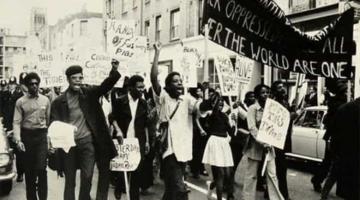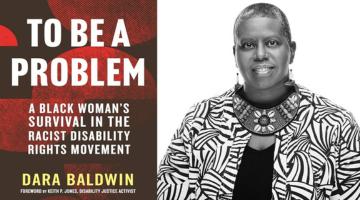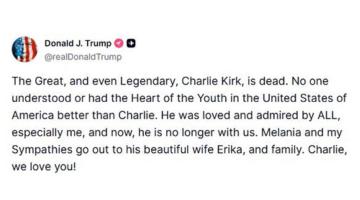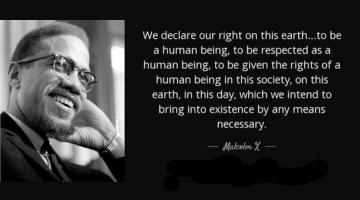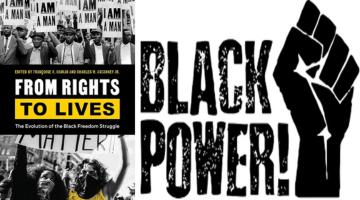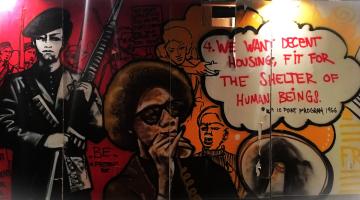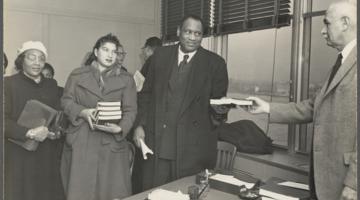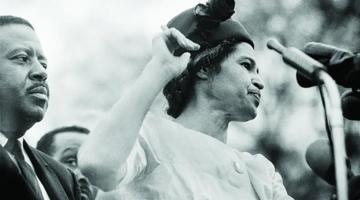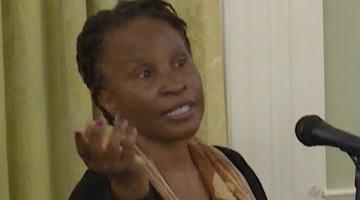In this series, we ask acclaimed authors to answer five questions about their book. This week’s featured author is Vincent Lloyd. Lloyd is professor of theology and religious studies and the director of the Center for Political Theology at Villanova University. His book is Black Dignity: The Struggle against Domination.
Roberto Sirvent: How can your book help BAR readers understand the current political and social climate?
Vincent Lloyd: It is not just that we, in the US or the world, are more conscious of racial injustice today than we were five or ten years ago. There is a qualitative difference in public conversations about racism. There is a paradigm shift fueled by innovations produced in social movements and in scholarship – and particularly by the novel ways in which social movements and scholarship have started to feed off each other.
The era of multiculturalism is over. That was the old paradigm, where we celebrated diversity and lamented barriers various marginalized communities faced to full inclusion. The new paradigm names the specificity of anti-Black racism, the way that the legacy of slavery distinctively arrays political, economic, and psychological forces against Blacks.
Another aspect of the new paradigm is the way it affirms the value of Black life. Not in some abstract sense but in the particular shape that Black life takes as a result of anti-Black racism. D Smoke calls these “Black habits” – Black magic, Black excellence, Black medicine, Black pride, everything Black. I add: Black love, Black rage, Black family, Black futures, and, foundationally, Black dignity.
Of course anti-Black racism is nothing new, nor are the virtues that form Black life. What is new is that we are naming and centering these practices. This strengthens a sense of Black community and has led to an outpouring of Black intellectual and aesthetic production. Non-Black observers often overlook this aspect of our political and cultural moment, and I wanted to draw attention to it in Black Dignity.
What do you hope activists and community organizers will take away from reading your book?
First, I want to fill out the tradition of Black thinkers and activists that has shaped our current moment. To name more ancestors. There are a few important figures who are invoked over and over in movement histories: Ella Baker, Assata Shakur, Audre Lorde, Malcolm X, Octavia Butler, and the Combahee River Collective, to name a few. These are inspirational figures, but I want to supplement this emerging canon, holding up, for example, Samuel Delany, Aimé Césaire, George Jackson, and Lynice Pinkard. I also want to draw our attention to radical ways of reading familiar figures. I suggest, for example, that we reject the notion that Martin Luther King, Jr., is a great philosopher of love, arguing instead that most of the time he talks about love he is telling us what love is not – he is enacting a form of ideology critique, challenging the wisdom of the wealthy and powerful.
Second, I want to empower organizers to critically engage with this tradition. Too often these days the names of Black thinkers are invoked as talismans, magically empowering those who invoke them (and marking racial or political credentials). Black Dignity urges us to turn from names to ideas, and to argue with those ideas. Even the greatest Black thinkers and activists get things wrong. Sometimes they disagree with each other, and we should be willing to name that disagreement and think through where we land. For example, I think Alice Walker’s account of love is far inferior to Audre Lorde’s.
Finally, Black Dignity models what it looks like to center a Black canon but also to engage with European thinkers. Socrates, Nietzsche, and Levinas have deep insights into our world, not just for philosophers but for organizers as well. Instead of excluding them from our bookshelves, we should keep them at the edges and stage critical dialogues between them and Black political thought and practice.
We know readers will learn a lot from your book, but what do you hope readers will un-learn? In other words, is there a particular ideology you’re hoping to dismantle?
Sometimes we treat currents in radical Black thought as if they are discrete, coherent projects: Afropessimism, Black feminism, Black Marxism, and so on. It can almost feel as if they are bodies of doctrine to choose between and then master. This makes the world of ideas seem rather esoteric, and distant from the world of practice. It also plays into the ideology of diversity bureaucrats who package traditions of Black thought into digestible morsels that can be put on a PowerPoint, applied to an institutional context, and can yield policy recommendations.
Black Dignity invites readers into a rambunctious world of Black ideas, practices, and people – pushing up against each other, changing over time, responding to changing circumstances, challenging each other and challenging us. I want readers to feel empowered to enter the fray, to agree or disagree, to try new ideas, to find new resources that I didn’t even write about. The book is not meant to advance a certain doctrine or as a how-to guide for organizing. It is meant to encourage us to allow intellectual engagement and political commitment to shape who we are becoming.
Put another way, Black Dignity is dialectical, not dogmatic. I show what it means to try out ideas, to test them against other ideas and against the world, to refine them, sometimes to abandon them in favor of new ideas – but to persist in this work. I get frustrated when Black intellectuals and activists, particularly those with public platforms, parrot a white caricature of Black thought, acting as if Black thought is static and dogmatic.
Who are the intellectual heroes that inspire your work?
I already mentioned the expanded canon of Black figures whose thought and practice I engage, but the “heroes” from whom I take guiding principles for my own work are those associated with the Johnson-Forest Tendency. This is a too-often overlooked political movement that flourished in the late 1940s and 1950s in New York and Detroit, led by C. L. R. James, Grace Lee Boggs, and Raya Dunayevskaya. James was born in Trinidad and became a writer, activist, and intellectual, living in the UK, US, and Caribbean. Boggs was a second-generation Chinese-American philosopher who would go on to a lifetime catalyzing grassroots Black politics in Detroit, in collaboration with her husband, the Alabama-born autoworker and organic intellectual James Boggs. Dunayevskaya with a Lithuanian Jew who immigrated to the US as a child, moved to Mexico to become Trotsky’s secretary, and then dedicated the rest of her life to developing the tradition of Marxist humanism.
Together, James, Boggs, and Dunayevskaya carefully studied the works of Hegel, Marx, and Lenin, translating some works by the early Marx into English for the first time. They read philosophy but they also followed racial justice movements in the US, anti-colonial movements around the world, and labor struggles from a micro scale, on the factory floor, to the macro, around issues like automation. For a few years of daily, intense collaboration, they set out a vision for political organizing that centers the insights and intellectual production of those most affected by domination at a very local level while also making connections with radical thought around the world.
Each of these figures had their flaws, but I find their commitment to dialectical engagement with ideas and the world inspirational – and much-needed today. Where they took labor organizing as the paradigm of domination, with anti-Black racism as an important but secondary type, in Black Dignity I try to employ their approach but with anti-Blackness at the center.
In what way does your book help us imagine new worlds?
In the chapter of Black Dignity on “Black Futures,” I conclude by turning to the Black, queer science fiction writer Samuel Delany and considering how he might inhabit, or stretch, the role of the prophet. In the turn from the charismatic leader-centered organizing of the civil rights and Black power movements to the “leaderful” organizing of Black Lives Matter, where the leadership potential of all participants is cultivated, it might seem like the role of the prophet is eliminated. I argue that the role transforms: figures like Delany are imagining otherwise in tremendously powerful ways, stoking our imagination and prodding us out of old habits of thought and practice. But Delany is doing this – continues to do this – from a relatively marginal position, in a relatively marginal genre. Unlike the way James Baldwin inhabited the prophet’s role, preaching to the nation in print and on television, Delany prophesies powerfully but less directly, avoiding the traps that the national spotlight sets for even the best who face it.
While Delany’s science fiction is often literally about imagining new worlds, I am also fascinated by his three autobiographies: Heavenly Breakfast (1979), The Motion of Light in Water (1988), and Times Square Red, Times Square Blue (1999). Each of these is a brilliant literary work on its own, elegantly crafted and probing self and world. Read together, they are a lesson in how to imagine new worlds with increasing sophistication. Heavenly Breakfast recalls Delany’s days living in a commune, struggling with his housemates to bring into being a new, better sort of life together amidst the world’s horrors. Times Square Red describes another sort of utopia: Manhattan before it was transformed by gentrification, which Delany describes as an effervescent place where different classes and different cultures bumped into each other, giving rise to new ideas and new ways of being.
In these three texts, Delany is basically telling stories of failed utopias, but without being swamped by nostalgia or lament. He tells their stories to inspire us to persist in imagining anew, fueled by the beautiful people and places that are already around us. Black Dignity aims to harness this spirit, telling stories of the promise and partial failures of the past and the inspiring beauty of Black activism in the present, thereby inviting readers to imagine together a future of goodness, truth, and justice beyond words.
Roberto Sirvent is editor of the Black Agenda Report Book Forum.

